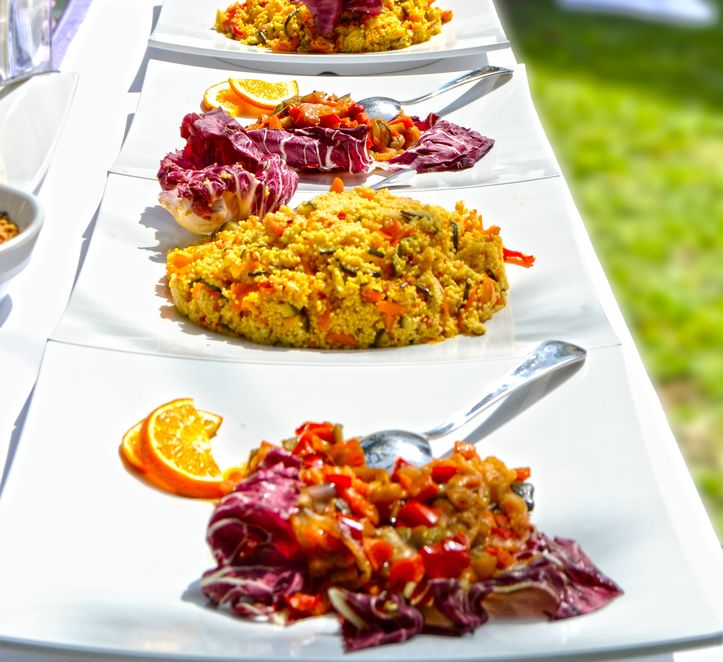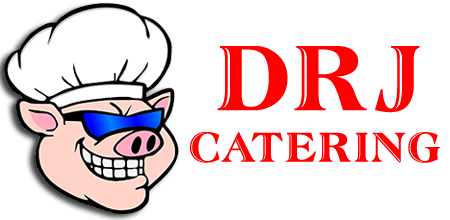 The duties surrounding a catering position may vary based on whether a caterer is self-employed or working for a catering company. Different types of caterers meet different needs for their clients. Regardless of who they work for or where they work from, they all share similar functions as they prepare and serve different food items to clients hosting events, meetings, and parties.
The duties surrounding a catering position may vary based on whether a caterer is self-employed or working for a catering company. Different types of caterers meet different needs for their clients. Regardless of who they work for or where they work from, they all share similar functions as they prepare and serve different food items to clients hosting events, meetings, and parties.
A professional caterer should have good communication skills, cooking ability, interpersonal relationship skills and give attention to detail. Although catering does not require formal education, having enough experience or expert training in food preparation, business management, and event planning can make a viable candidate. This article looks at the top seven functions of a caterer.
- Menu Planning
Since caterers are well versed with different kinds of recipes, they must prepare a menu with a variety of foods that will appeal to guests. Some of the items that may be included in a menu include entrees, appetizers, sandwiches, salads, desserts and other foods that accommodate people with dietary needs. Since you will be serving large groups of people, a caterer may be required to provide several options for children, vegetarians, and individuals who are allergic to certain foods.
- Coordinating an Event
Caterers are required to work closely with the event coordinator or the host to serve different courses of a meal at the appropriate times without disrupting the guests or any pertinent procedures. Wedding receptions make a prime example of a scheduled chain of events. For instance, the catering staff may serve appetizers and other finger foods while guests are being received. However, caterers may be required to leave the dining area when making toasts and bridal party announcements until it is time to start the table service.
- Food Preparation
One of the top functions of caterers is to prepare and serve food to guests. While a caterer needs to provide quality food and attractive presentation to your guests, they are also required to maintain good health and sanitary standards for both ethical and legal reasons. The catering staff should be conscious of portion control to avoid underserving the guests, unnecessary wastes, or loss of profits.
- Transportation of Food Items
Another function of a caterer is that they are required to transport food efficiently to the event site. Certain items like cold cuts or salads must remain chilled while meats and pasta should be kept hot until they are served. Some items need to be prepared on-site while others must be prepared in advance and transported to the venue of the event. Food items such as beef sandwiches need to be prepared in advance but they are often assembled at the event. A professional caterer is equipped with proper catering supplies and packing techniques that allow easier and convenient transportation of food items to the location of the event.
- Setting Up
A catering staff is often tasked with setting up all linens, chairs, tables, and areas where guests will be seated. If the venue has a pre-set dining area the catering staff will be required to create a buffer-style setup or organize the area based on the theme of the event and how guests will be served. In formal setups, caterers set up the tables and differentiate the sitting area based on the categories or status of the guests.
- Foodservice
Once all food items and serving areas have been prepared, the catering staff are required to serve the food to your guests. A waiting staff may be asked to serve different food items for buffet-style meals at events that are more casual. For formal events, a catering staff may be required to deliver foods and drinks to the tables where guests are seated.
- Cleaning Up
The final function of a caterer is to clean up after the event is over and tear down the dining area. They remove and clean all glasses, silverware, plates, and dishes that were used to serve guests during the event. The last required responsibility for a caterer is to pack up any leftover foods, thermal containers, serving equipment, and bags to complete the job.
The functions of a caterer are diverse and may vary depending on whether they are self-employed or working for a catering company. Some may offer extra services beyond their regular services to satisfy the different needs of their clients. A professional caterer needs to give attention to detail, and uphold both hygienic and ethical standards during an event to offer the best guest experience.
